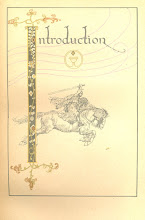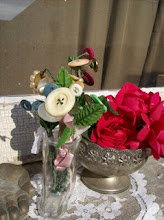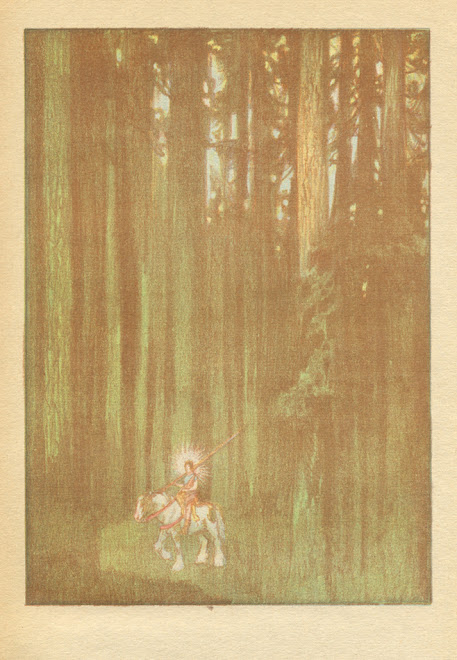I am not sorry I went to this past weekend's poetry conference, a supplement to the Santa Barbara Writer's Conference, because I did get some useful things out of it, but for my purposes I will say upfront that it was somewhat disappointing. I want to connect with publishers, and there were none at this event. I did talk to some of the instructors, and got some good advice, but on the whole this particular conference was very light on practical tools. It was more for people who are deeply serious about poetry, both as writers and readers, which I am, but not in quite the way that seems most common: I want to get my writing out there, not just sit around and talk about it, and I found the weekend frustrating for that reason.
Again, it was not a total loss. The guest of honor was Philip Levine, an American poet of great standing who has written and published since the 1930's. I was not familiar with his work, and I thought his writing was really lovely. The first event I attended on Saturday was a review of his career by the poet and critic Charles Buckley, and I found that stimulating. I also enjoyed the master class Mr. Levine led on Sunday, although I really don't like workshopping, either my own work or anyone else's. I just don't find it productive. Either you are writing or you are not, and dragging out something uncompleted for criticism makes me run screaming. It just does not work for me, and it can be dangerous. I am a supporter of the Artist's Way, the method of creative self-recovery developed by Julia Cameron, and I don't find it helpful to expose my work to outside and subjective criticism when it is in formative stages. Mr. Levine was extremely funny, but he did not hold back in telling the poets who offered their work up for his dissection exactly what he thought was wrong with their poems and what they needed to do to "fix" them. I just don't agree with that. He and some of the teachers and some of the participants at other workshops I went to were quick to offer opinions that served some abstract notion of what a poem should be without taking into account the aspect of self-expression they embody; in other words, a poem should express its maker at the stage of his creativity that he made it. Art is psychological and experiential, not some abstract ideal to strive for. It MUST be personal. I see nothing that a poet, no matter how great, can tell another to help him achieve that. Almost everyone whom I heard comment on anyone else's poetry the whole weekend either advocated taking huge chunks of material out of a piece, gutting it of everything interesting or individual, or they said they wanted more out of a particular piece, when it might be just fine in a compact form. It just seemed like there was no pleasing anyone: no matter what the work was, too long or too short, it was not right. The whole thing was an exercise in futility. It reminded me of a very bad art professor I had in college who, no matter what you had chosen to do for a project, would always spend your entire critique period offering up millions of alternatives of what else you could have done, and would never, ever comment on what you actually had done. It felt dismissive and narcissistic. Art is fundamentally choice: "I will write about King Arthur today, because that is what I want to do, and what works for me. " Never focusing on the artist's choice but instead offering a plethora of alternative choices negates what they did, in fact, choose to do. This conference experience just validated for me that I am in fact assured in my work. It may not be perfect, but it is me, and it says what I wanted it to say, and that is what I wanted to achieve. I think a lot of people hide in workshopping rather than actually finishing something. It turned out that two of the events I signed up for besides the master class were also workshops, and in one we each wrote a poem on the spot, and I was pleased with mine. I was happy that that came out, and I really liked my instructor for that one, Barry Spacks, but the general tone again ran to hacking away at people's work. It seems most people have a preference for streamlined modernist writing, and I don't, not at all. There are some exceptions, but I don't think it improves a poem to rip out all of the colorful modifying adjectives or arcane language. The second workshop had an instructor who shall remain nameless, because she seemed like a nice lady, but I did not agree with a single comment or criticism that she offered to anyone. She was one of the advocates of slash-and-burn, and I found it painful to listen to some of the things she advised people to do. In both workshops I frankly stated that I did not agree with much of what was said, and framed my response as a defense of a different aesthetic. To give her her credit, that instructor did say that it was entirely her opinion that she was offering and not any kind of directive or order. The deep play class I went to on Saturday evening had some fun elements to it, but I just was not in the right headspace for it, and got very bored. That was mostly my fault, I think. I was very tired by that point because I had such a busy week doing edits on my books that I just ran out of steam. It also covered a lot of things I have done before in similar exercises, and it just did not retain my attention. The final workshop I attended was called Talking to God, and while I really loved the poetry that the instructor chose and found some of the discourse effective, it was somewhat spoiled for me by two things. One, a lady attended who was a very vocal atheist and she offered up some commentary about how bad religion is and how mindless are those who follow it. As something of a theologian, I took exception to that, and said so. I don't attend atheist events and deride their opinions so I felt rather offended that she came to a workshop with "God" in the title and aggressively inserted her negative assessment. The topic was clearly advertised, and that seemed like she was deliberately trying to stir something up. She said that she liked that instructor and he is the reason she came, fair enough, and when she was asked why she felt as she did, she had very compelling reasons. I just found it an unwelcome distraction. The second thing that bothered me was that the subject of Islam came up, and there was some editorializing about it that I found offensive, including two people calling the Koran "stupid." I love Sufism, and I considered that a really unacceptable thing to say, and rose up in defense of Mohammed, as well.
The setting for the conference was beautiful, the Casa de Maria retreat center in Montecito just outside of Santa Barbara. However, I guess I am just too much of a city girl, used to access to things like ATM's and city buses. It felt a little too isolated and self-contained for me. There was not even any cellphone reception. The buildings at the center were also very depressing to me. They had been furnished in the early '80's and the main hall and some other spaces had the feel of a dentist's office. I could not wait to get out of them. The hike exercise was lovely, and I generated some interesting material from it, but I doubt that it will really go anywhere because it was very site-specific.
I think what it boils down to is that this conference was a little too touchy-feely for me. It felt too much like Poetry Camp instead of a professional networking event. I am looking for concrete tools and it simply did not have enough. Lesson learned. I was going on my experience with past conferences and will do more research in the future before I spend my time and money. Lots of attendees seemed very happy with it, and there were many who said they attend it year after year, but I won't be one of them.
Monday, March 31, 2008
Subscribe to:
Post Comments (Atom)









No comments:
Post a Comment